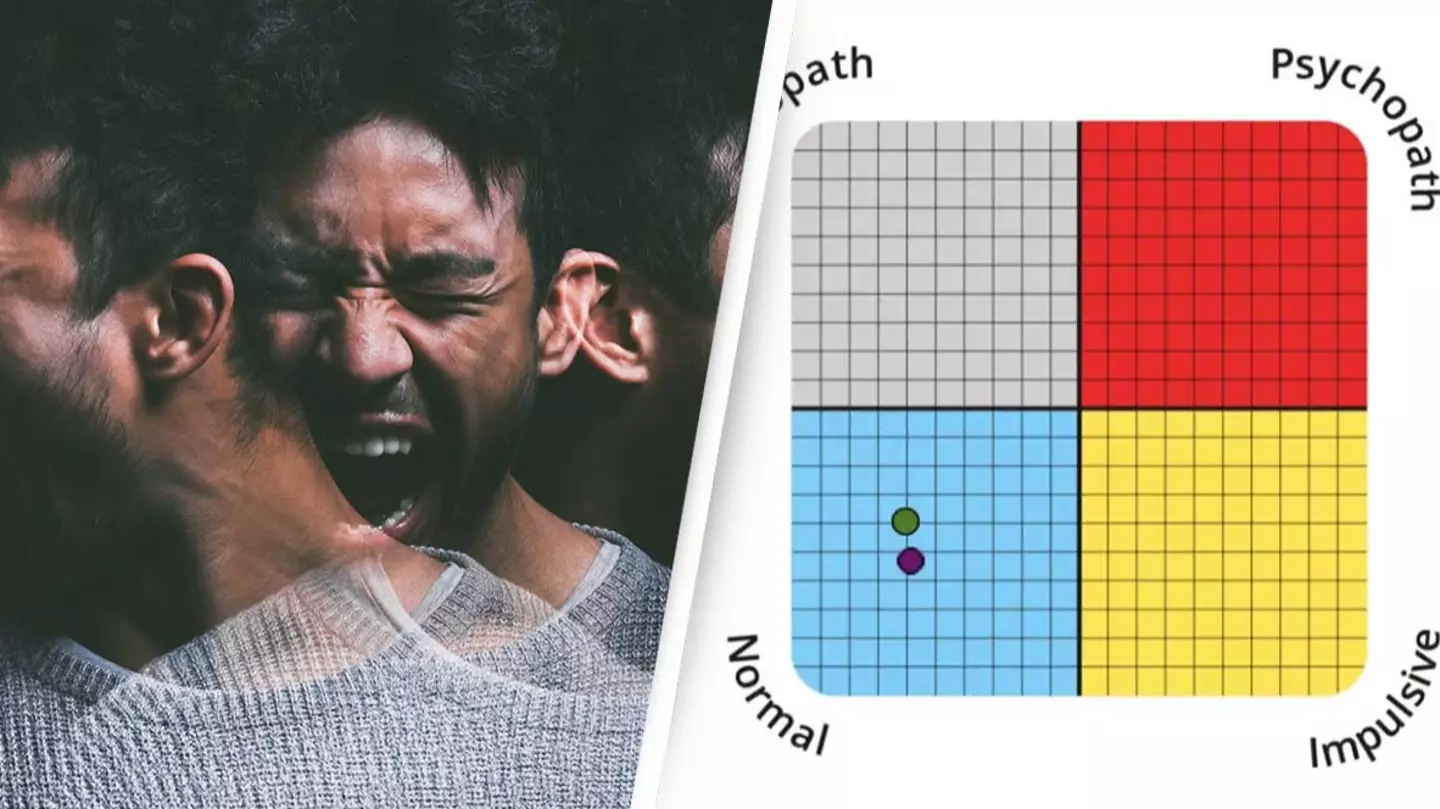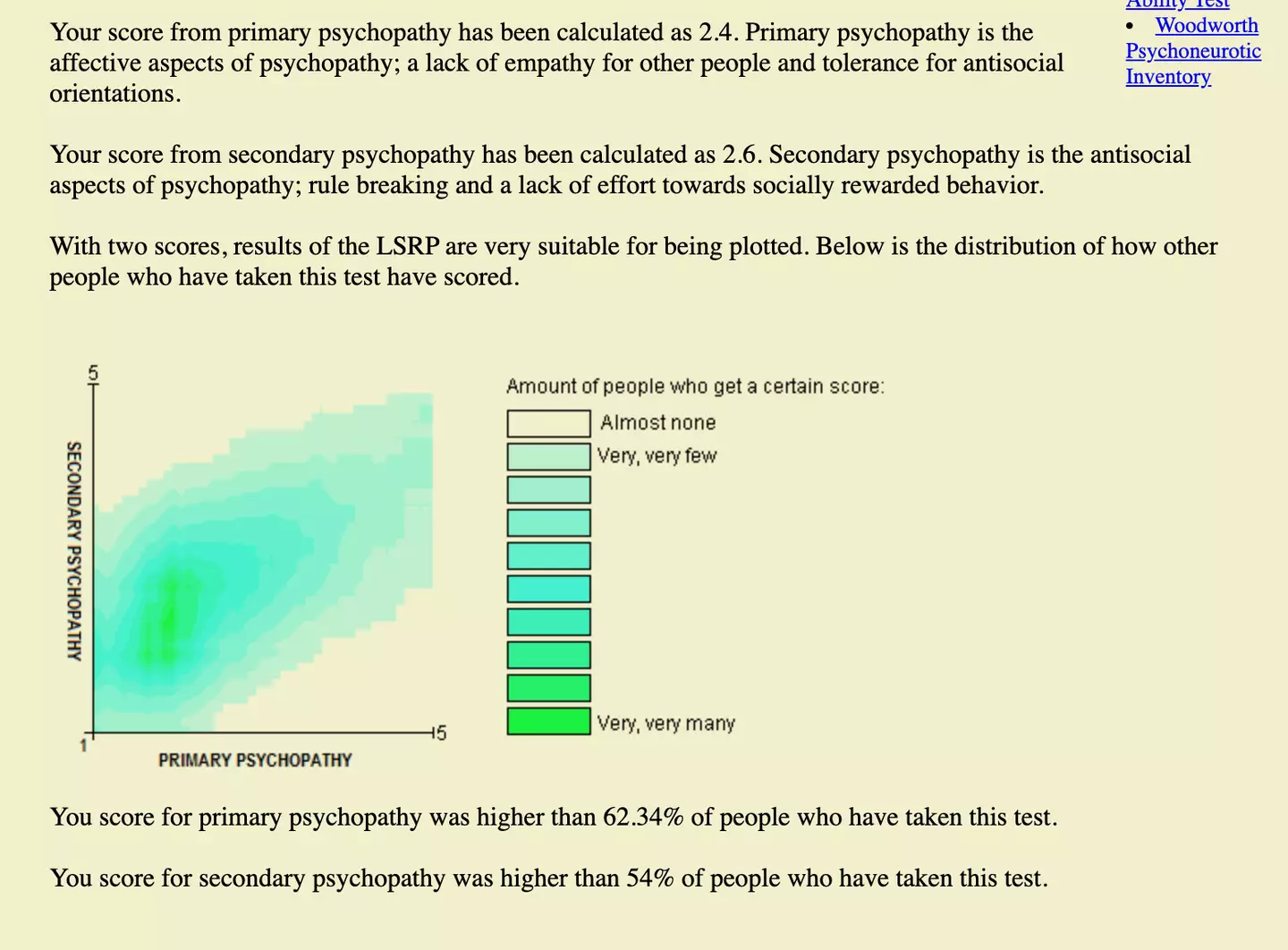
An online test can determine whether or not you have psychopathic tendencies within minutes.
'Psychopath' isn't actually an official mental health diagnosis, contrary to popular belief.
Instead, it's an informal term for someone with antisocial personality disorder (ASPD).
Commons signs of the disorder can include telling lies often, manipulating and hurting others and expressing anger and arrogance on a regular basis.
Advert
Other manifestations could include engaging in reckless, impulsive behavior which can lead to harmful consequences.
The 26-question quiz is based on the Levenson Self-Report Psychopathy Scale, created by Oregon State University psychology professor Michael Levenson.
Curated in 1956, it analyzes the number of people who secretly identify as 'psychopaths.'

Advert
People who complete the online quiz will receive a score that ranks where they fall on the psychopathy scale.
Users must rate how much they agree with statements on a scale from one - strongly disagree - through to five - strongly disagree.
Statements touch on lifestyle and world views, from 'I am often bored' and 'I quickly lose interest in tasks I start' to 'I often admire a really clever scam' and 'I enjoy manipulating other people's feelings.'
The results are then categorized into two scales - primary psychopathy, which measures psychopathic emotional affect, and secondary psychopathy, which looks at the psychopathic lifestyle.
Advert
You can try the Psychopathy Spectrum Test here, if you're curious.
On completion, the test tells you how you've scored one a scale of one to five and compares it to others who've taken the test.

The higher the score, the more likely you are to have expressed psychopathic tendencies in the test.
Advert
However another form of ASPD is sociopathy, which can often be confused with psychopathy.
Their overlapping symptoms include 'disregard for social norms and manipulating others,' according to Talkspace. But there are some pretty major differences too.
Mental health counselor Bisma Anwar explained: "Psychopathic behavior often results more from genetics or a congenital injury, whereas sociopathy is more from environmental factors.”
Sociopaths tend to be 'highly emotional' and experience 'emotional outbursts or mood swings,' the publication explained.
Advert
While they're still likely to take part in harmful behaviors, they 'typically try to rationalize their behavior in some way.'
People who display sociopathic behavior are likely to have experienced childhood trauma, while environmental factors are considered to be a trigger for the condition.
It's thought genetics and biology are the main cause of psychopathy, however.
Topics: Psychology, Mental Health, Health